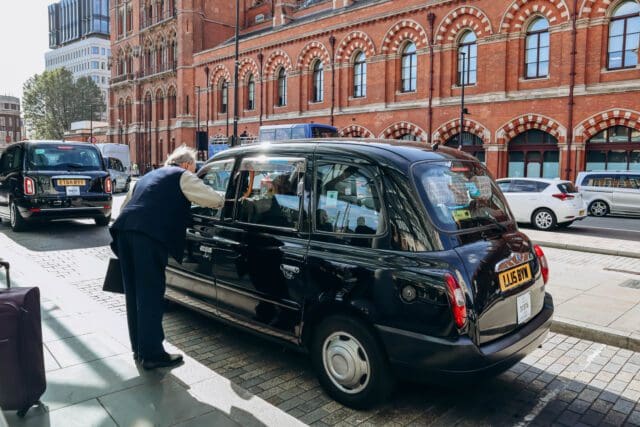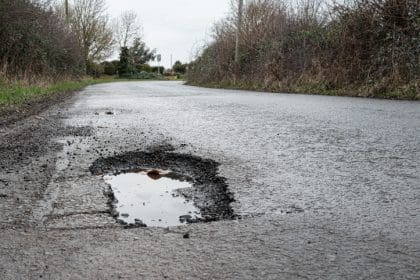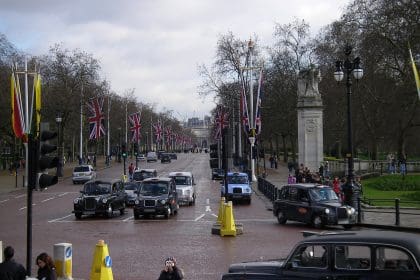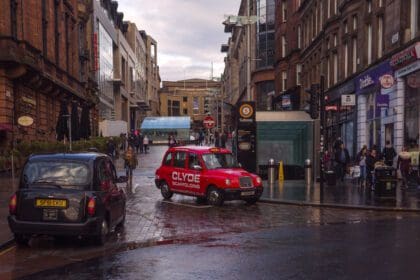Taxi fares in London have risen by more than twice the level of inflation in a bid to keep more cabbies behind the wheel as rising prices continue to hit drivers in the pocket.
As the cost of fuel, maintenance, repairs and taxi insurance remain high, the Evening Standard reports that Transport for London increased fares for black cabs by 8.9 per cent from April, while the rate of inflation was 4 per cent.
Following last year’s rise of 7.6 per cent, the latest increase came at a time when the number of licensed taxi drivers in London had fallen from 22,500 in 2015 to 14,800 in March – while there are more than 92,000 PHVs operating in the capital.
Changes
The fares passengers pay depend on the tariffs, such as the time of the day, weekends or weekdays, etc.
As part of the changes approved by Mayor of London Sadiq Khan, Transport for London kept the minimum public hire fare at £3.80, but the Standard reports that the increase means a one-mile weekday journey would rise from about £6.80 to about £7.20, and a three-mile weekday evening journey would increase from about £15.80 to £17.20.
TfL has also changed the tariff for journeys of more than six miles, making daytime trips more expensive while long journeys at night have become cheaper. It has also reduced the Heathrow premium of £3.60 that drivers can charge airport passengers on top of the cost of their journey to £2.
Consultation
The increase followed a consultation with cabbies and other stakeholders in the capital to raise fares by 3.7 per cent, 5.2 per cent or 8.9 per cent.
There were 1,487 responses from passengers, campaign groups and taxi drivers, with more than 52 per cent calling for the 8.9 per cent increase – including 72 per cent of drivers.
This is hardly surprising as TfL found that taxi drivers’ operating costs had increased by 5.2 per cent, with rising vehicle costs, insurance and the cost of electric charging forcing up prices. At the same time, average national earnings increased by just 3.7 per cent.
Fairer fares
TfL said: “It is important that taxi drivers are fairly paid to try to ensure that taxi driving remains a viable career, licensed taxi drivers do not stop being a taxi driver and people will consider applying to become a licensed taxi driver.”
“If the number of licensed taxi drivers falls, then this could affect the supply of taxis and increase the risk that taxi users are unable to get a taxi or have to wait longer for a taxi.
“There could be an increased risk to the safety of some people if taxi wait times increase or they are unable to get a taxi.
“Taxis play an important role getting people around the capital, in particular, those with accessibility issues.
Balance
“When considering changes to taxi fares, we always try to strike a balance between taxi drivers being fairly paid and taxi passengers getting fair and affordable fares.”
Drivers weren’t being greedy when they asked for the 8.9 per cent fares rise – they were being realistic about the rising costs and challenges they face to make ends meet.
It is good to see a licensing authority take meaningful action that could help keep dedicated London cabbies doing the job they love.




